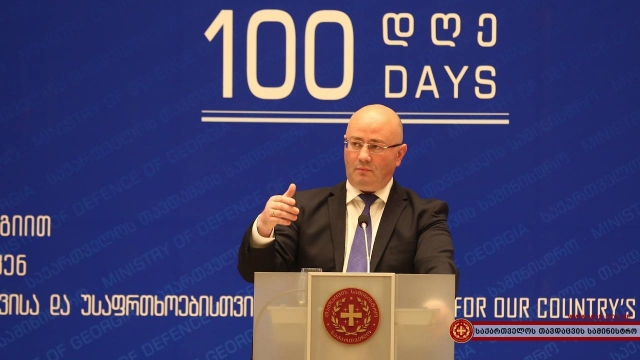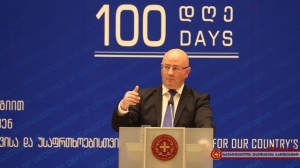Georgia’s Defense Ministry Restores Compulsory Military Conscription
TBILISI – Georgia’s Defense Minister, Levan Izoria stated on Monday that compulsory military conscription would be restored, after being abolished this summer.
Izoria declared about his decision while summing up 100 days of working as a Defense Minister, saying the decision was made after serious consultations.
According to him, nearly all small countries, which face similar challenges and threats as Georgia, have obligatory military conscription.
The Minister stated that the compulsory conscription was financially more profitable for the state than contact-based military service. He explained that the state spends around 27.000 GEL a year on a contract-based serviceman while it spends 9.000 a year on an army conscript.
Moreover, Izoria believes that compulsory conscription will help integration of ethnic minorities and will increase civil awareness.
The Minister also said that the conditions of the conscripts would improve and they would be released from service on weekends and official holidays and enjoy 50 GEL salary.
“The recruits will undergo thorough an initial military training and become full-fledged military servicemen,” the Minister said and added that the Ministry would receive new recruits from spring 2017.
Izoria’s predecessor, Tina Khidasheli abolished compulsory military conscription in June 27, 2016 saying Defense Ministry did not need soldiers who are forced to serve in the army.
However, her decision did not mean that conscription would have been completely abolished, as there are two other ministries which also recruit youth for compulsory military service. They are the Ministry of Internal Affairs and Ministry of Corrections.
About 25 percent of all eligible conscripts typically serve in the Defense Ministry while the remaining 75 percent serve in the other two ministries.
Ex-Defense Minister Khidasheli did not approve Izoria’s decision to resume obligatory conscription. She said that Izoria’s main argument, that the compulsory conscription is financially more profitable, is weak.
“The Minister says that recruits will undergo military training, which means the costs will also increase,” stated Khidasheli.
She also stated that Izoria wanted to restore compulsory military conscription from the very first day he became the minister, but announced about this only after Georgia’s October Parliamentary elections, as he feared that people would not vote for the ruling Georgian Dream Party.
By Thea Morrison












